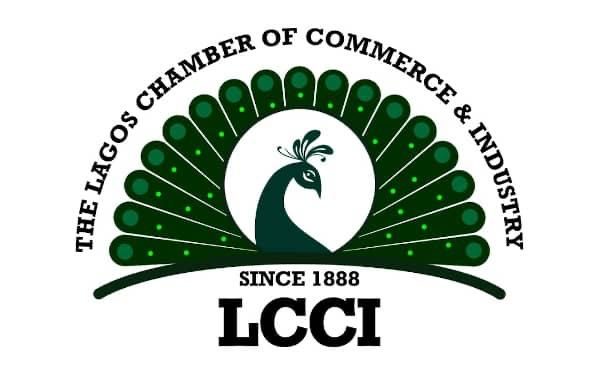LCCI 63rd Independence Anniversary Statement 2023
A review of the past 63 years shows that the Nigerian economy has performed sub-optimally with huge implications on citizens’ welfare and rising uncertainty. The economy is struggling with difficult conditions including high inflation, weak currency, declining reserves, falling household purchasing power, rising debt burden, high and rising unemployment, rising income gaps and poverty levels.
Despite these challenges, Nigerians have persevered in promoting democracy and becoming Africa’s Pride since 1999. Twenty-four years ago, Nigerians support for democracy has earned the country enormous goodwill as one the few stable democracies in Africa. The present administration has implemented far-reaching policy reforms, such as removal of fuel subsidy, exchange rate harmonisation, tax reforms etc., in an effort to change the country’s growth trajectory. Sustaining market-friendly policies and promoting macroeconomic stability is one of the most important steps in achieving optimal growth and improving citizens welfare.
The Chamber wishes to commend the Federal Government for providing clarity on the economy and the President’s 8-Points Agenda:
i. Food security and ending poverty.
ii. Economic growth and job creation.
iii. Access to capital, particularly consumer credit.
iv. Inclusivity in all its dimensions as regards youths and women.
v. Improving security.
vi. Improving and leveling the playing field on which people and companies operate
vii. Rule of law.
viii. Fighting corruption.
The LCCI recognises the impacts of the reforms on vulnerable workers and low-income earners. The Chamber is of the view there is urgent need to review the wage structure of Nigerian workers (@ US$30 for 30 days, the minimum wage is extremely poor). With high inflation rate, volatile exchange rate, low GDP growth, weak infrastructure, insecurity, etc., I call on the Federal Government to address the macroeconomic issues and the insecurity challenges facing the country.
The economic growth trend, measured by the GDP performance, has generally been positive over the last two decades, except for recent challenges posed by debt crises, inflation risks, insecurity, post-effect of subsidy removal, and FOREX illiquidity.
The business environment remains a concern to investors, especially in the real sector. Weak infrastructure, uncertain policy environment, and institutions have continued to adversely affect the efficiency, productivity, and competitiveness of many enterprises. These conditions pose a major risk to job creation, economic inclusion, and competitiveness, especially with the Africa Continental Free Trade Area (AfCFTA) agreement now in place.
The CBN in its July 2023 MPC meeting increased the benchmark interest rate by 25 basis points to 18.75% from 18.5%. This consistent hawkish stance by the monetary authority is in response to the high inflationary pressure, consistent weakening in the value of the local tender, and developments in the global economy.
The foreign exchange market remains volatile. Naira exchange rate (N/$) averaged N761.41/US$ as at the end of September 2023 compared to N770.32/US$ in the previous month at the Investors’ & Exporters (I&E) windows while at the Bureau de Change (BDC) Naira averaged N961.76/US$ compared to N910.65/US$ in August 2023.
Nigeria’s economy grew by 2.51% (year-on-year) in real terms in the second quarter of 2023 according to the report released by the National Bureau of Statistics (NBS). Nigeria’s public debt stock increased to N87.38 trillion ($113.42 billion) in Q2 2023 from N49.85 trillion ($108.30 billion) in the previous quarter.
KEY CHALLENGES IN THE BUSINESS ENVIRONMENT
Power Situation
Poor power supply remains a major burden on businesses. It is an area of progressive decline since Independence. Power supply has consistently lagged behind the pace of economic activities and population growth. This development impacted negatively on investment over the past few years with increased expenditure on diesel and petrol by enterprises. This also comes with the consequences of declining productivity and competitiveness. With the frequent collapses recorded by the national grid, we can no longer rely on a centralised power source. The way to go is renewable energy and decentralising the national grid.
Insecurity
The country’s security situation deteriorated in the last year, assuming a very worrisome dimension. This has impacted investment inflow and worsened the country’s perception and image by the global investing community. Access to markets in the troubled parts of the country has been reduced for many enterprises, with negative consequences for investors’ confidence.
Weak Infrastructure
Poor infrastructure particularly in the areas of road, rail, ICT, ports, etc. is a big challenge to Nigeria’s socio-economic development. The water and sanitation sector has inefficient operations, with low and declining levels of piped water coverage. Irrigation development is also low relative to the country’s substantial potential. Addressing Nigeria’s infrastructure challenges will require sustained expenditure of almost $14.2 billion per year over the next decade, or about 12 percent of GDP.
The way forward is to address the fundamental constraints to manufacturing competitiveness. In reality, job losses in the sector have increased over the decades as productivity declined on the back of the difficult operating environment.
Our nation is at a crossroads and in dire need of big decisions to drive the drastic transformation the economy requires to return to meaningful economic prosperity.
The Chamber wishes the Government and people of Nigeria happy 63rd Independence anniversary celebrations.















